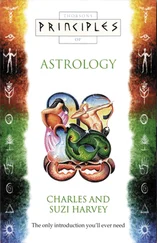Joseph Harvey Ward - The Hand of Providence
Здесь есть возможность читать онлайн «Joseph Harvey Ward - The Hand of Providence» — ознакомительный отрывок электронной книги совершенно бесплатно, а после прочтения отрывка купить полную версию. В некоторых случаях можно слушать аудио, скачать через торрент в формате fb2 и присутствует краткое содержание. Жанр: foreign_prose, foreign_religion, Философия, foreign_psychology, foreign_antique, на английском языке. Описание произведения, (предисловие) а так же отзывы посетителей доступны на портале библиотеки ЛибКат.
- Название:The Hand of Providence
- Автор:
- Жанр:
- Год:неизвестен
- ISBN:нет данных
- Рейтинг книги:3 / 5. Голосов: 1
-
Избранное:Добавить в избранное
- Отзывы:
-
Ваша оценка:
- 60
- 1
- 2
- 3
- 4
- 5
The Hand of Providence: краткое содержание, описание и аннотация
Предлагаем к чтению аннотацию, описание, краткое содержание или предисловие (зависит от того, что написал сам автор книги «The Hand of Providence»). Если вы не нашли необходимую информацию о книге — напишите в комментариях, мы постараемся отыскать её.
The Hand of Providence — читать онлайн ознакомительный отрывок
Ниже представлен текст книги, разбитый по страницам. Система сохранения места последней прочитанной страницы, позволяет с удобством читать онлайн бесплатно книгу «The Hand of Providence», без необходимости каждый раз заново искать на чём Вы остановились. Поставьте закладку, и сможете в любой момент перейти на страницу, на которой закончили чтение.
Интервал:
Закладка:
The appearance of Constantinople at the present time is very peculiar. The city is embosomed in gardens, orchards and vineyards. The houses are for the most part built in the form of a hollow square, with flat roofs and the windows facing inward. This gives to the compact parts of the city a rather dingy appearance. The streets, especially in the ancient portions, are extremely narrow, and frequently filthy. It is therefore pleasant to turn from these crowded thoroughfares, and in a few moments' walk, find yourself surrounded with shady trees, singing birds, fountains and flowers.
Here, in the limits of a single city, may be found representatives of almost every race and clime. The fair-haired natives of northern Europe, the swarthy inhabitants of Tartary, tall fierce-looking Circassians, and flat-nosed, woolly-headed negroes from central Africa; all mingling with the more polished inhabitants of western Europe, each dressed in his own peculiar garb, and presenting a living picture no less striking than strange. In this great hive of humanity may be heard at least fifty different languages making a complete Babel of sounds. Here, also, may be seen in striking contrast, the different manners, customs and usages of oriental and western nations.
The different methods used in the transportation of merchandise are no less peculiar; for while on the eastern side of the city, may be seen approaching long caravans of camels laden with the rich products of the East, on the western side may be heard the shriek of the locomotive, announcing the arrival of a train, bringing passengers, merchandise and latest intelligence from western nations.
But the most significant custom is that five times a day the muezzins , or Mahometan priests, ascend to the top of the mosques (as places of worship are called) and which are thickly scattered through the city, and in a loud wailing voice exclaim, "God is great! There is one God! Mahomet is His prophet! Come to prayer!" This is repeated four times facing the east, south, west and north, and has a penetrating effect on the mind of the hearer, much more than the sound of the church-bell of the Christians, or the trumpet of the Jews.
Most European historians have lamented the seizure of Constantinople by the Turks as a terrible disaster. To the unprejudiced student of history there seems to be but little reason for regret. For eleven hundred years Constantinople had greatly influenced the destinies of the world; but during all that time her power had tended more to the degradation than to the elevation of mankind. Her citizens possessed all the classical writings and works of art of the great authors of antiquity; yet in a thousand years they never produced one original, never advanced one step in philosophy or science, or made a single practical discovery. What was it that produced this barrenness, this intellectual degradation in Constantinople? It was the tyranny of priestcraft over thought. For a thousand years Constantinople had been not merely the leading commercial city, but also the leading city in debauchery and crime. In this respect it has vastly improved under Turkish rule. At the present time, especially in the Mahometan portions of the city, it is the least licentious of all the great capitals of modern Europe.
CHAPTER VI
RELIC-WORSHIP, PILGRIMAGES AND CRUSADES
GROWTH OF RELIC-WORSHIP—SCHEMES OF THE ROMAN PONTIFFS—MANUFACTURE OF RELICS—THEIR GREAT VARIETY—VALUE OF RELICS—INSULTS OFFERED TO PILGRIMS—PETER THE HERMIT—CRUSADES—DISORDERLY RABBLE—TERRIBLE SUFFERING—CAPTURE OF JERUSALEM—TERRIBLE MASSACRE—CAPTURE OF CONSTANTINOPLE—CRUSADES OF THE CHILDREN—RESULT OF THE CRUSADES—REVIVAL OF LEARNING.
In previous chapters has been traced the apostasy of the early church, also the career of Mahomet, and the conquests and achievements of the Saracens. While these events were transpiring, other causes were at work which led eventually to the elevation of mankind, the history of which plainly indicates the workings of an All-wise Providence.
At this period there were no printed books, and the only means of religious instruction to which the masses had access, were the pictures and images to be found in the churches, together with the explanations of them given by the priests. By means of these practical object-lessons much useful information was imparted. The principal events in the life of our Savior were thus depicted, and, though the people did not fully understand the grandeur of His mission, they at least learned something of His history, their duties to each other and their own future destiny.
Thus there came to be associated in their minds a reverence for the picture or image itself, and this idea extended until it included the localities where the great events of the Savior's life, death and resurrection transpired.
With the growth of devotion to the person of Christ, grew the feeling of reverence for every place which He had visited and every memorial which He had left behind Him. The impulse once given, soon became irresistible. Every incident of the gospel narratives was associated with some particular spot, and millions believed that the sight of these places brought them nearer to heaven. The cave or excavation in which it was said the Redeemer was born, and where the wise men of the East laid before Him their royal gifts of gold, frankincense and myrrh, the mount from which He uttered His blessings on the meek, the merciful and the pure in heart, in short, every spot connected with his life, death and resurrection called forth emotions of passionate veneration. These feelings were greatly intensified by the alleged discovery of the cross on which the Savior died, together with the two crosses on which the thieves were crucified.
The splendid churches raised by the Emperor Constantine and his mother Helena over the supposed spot of our Savior's birth at Bethlehem, and His sepulchre at Jerusalem, became for the Christian of that day what the tomb of the prophet at Medina became afterwards to the followers of Mahomet.
The remission of sins and eternal rewards in the world to come were the blessings promised to the weary pilgrim when he should tread the classic soil of Judea, bathe in the river Jordan, chant his quiet anthem of praise in the cave at Bethlehem, walk in the quiet shades of Gethsemane and kneel in reverence at the Savior's tomb.
No wonder then that a hundred thousand pilgrims might have been seen each year wending their way across the plains of Asia Minor, destined for Jerusalem.
The Roman pontiffs, owing to the ignorance of the times, had already built up a wide-spread system of superstition.
They held almost imperial sway over the countless hordes of central and northern Europe. Even kings and emperors paid tribute, and sovereigns dared not disobey their commands. As an instance, might be mentioned Henry IV., of Germany, who having displeased Pope Gregory VII., was obliged, under penalty of losing his kingdom, to stand as a penitent at the pope's castle gate during three dreary winter days, seeking pardon and reconciliation of the inexorable pontiff.
It is not surprising that the popes, who had long trafficked in human credulity, saw, in the growth of relic-worship, an opportunity to increase their own power and the revenues of the church of Rome. Accordingly an understanding was made with the monks of Palestine and relics were manufactured in untold numbers.
An amusing and instructive chapter might be written on this subject: amusing because of its absurdity, and instructive as it shows to what extremes of folly men will go when left without the guidance of the Holy Spirit.
The crimes and corruptions of the papacy had destroyed public confidence. The devout instinctively turned with reverence towards every object that recalled the memories of the pure and good who once lived upon the earth.
Читать дальшеИнтервал:
Закладка:
Похожие книги на «The Hand of Providence»
Представляем Вашему вниманию похожие книги на «The Hand of Providence» списком для выбора. Мы отобрали схожую по названию и смыслу литературу в надежде предоставить читателям больше вариантов отыскать новые, интересные, ещё непрочитанные произведения.
Обсуждение, отзывы о книге «The Hand of Providence» и просто собственные мнения читателей. Оставьте ваши комментарии, напишите, что Вы думаете о произведении, его смысле или главных героях. Укажите что конкретно понравилось, а что нет, и почему Вы так считаете.












